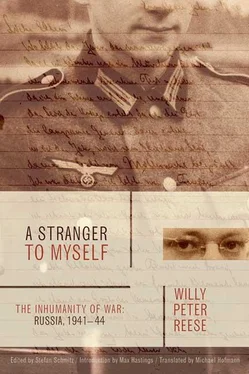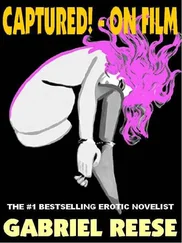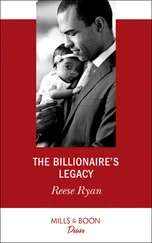Willy Reese - A Stranger to Myself
Здесь есть возможность читать онлайн «Willy Reese - A Stranger to Myself» весь текст электронной книги совершенно бесплатно (целиком полную версию без сокращений). В некоторых случаях можно слушать аудио, скачать через торрент в формате fb2 и присутствует краткое содержание. Город: New York, Год выпуска: 2011, ISBN: 2011, Издательство: Farrar, Straus and Giroux, Жанр: Биографии и Мемуары, military_history, на английском языке. Описание произведения, (предисловие) а так же отзывы посетителей доступны на портале библиотеки ЛибКат.
- Название:A Stranger to Myself
- Автор:
- Издательство:Farrar, Straus and Giroux
- Жанр:
- Год:2011
- Город:New York
- ISBN:978-1-42999-875-8
- Рейтинг книги:4 / 5. Голосов: 1
-
Избранное:Добавить в избранное
- Отзывы:
-
Ваша оценка:
- 80
- 1
- 2
- 3
- 4
- 5
A Stranger to Myself: краткое содержание, описание и аннотация
Предлагаем к чтению аннотацию, описание, краткое содержание или предисловие (зависит от того, что написал сам автор книги «A Stranger to Myself»). Если вы не нашли необходимую информацию о книге — напишите в комментариях, мы постараемся отыскать её.
is an unforgettable account of men at war.
A Stranger to Myself — читать онлайн бесплатно полную книгу (весь текст) целиком
Ниже представлен текст книги, разбитый по страницам. Система сохранения места последней прочитанной страницы, позволяет с удобством читать онлайн бесплатно книгу «A Stranger to Myself», без необходимости каждый раз заново искать на чём Вы остановились. Поставьте закладку, и сможете в любой момент перейти на страницу, на которой закончили чтение.
Интервал:
Закладка:
Copyright © 2003 by Hannelore Kern and Stefan Schmitz
Translation copyright © 2005 by Michael Hofmann
Foreword copyright © 2005 by Farrar, Straus and Giroux, LLC
All rights reserved
Originally published in 2003 by Claassen Verlag, Germany, as Mir selber seltsam fremd: Die Unmenschlichkeit des Krieges , Russland 1941-44
Published in the United States by Farrar, Straus and Giroux
FARRAR, STRAUS AND GIROUX
19 Union Square West, New York 10003
Photographs used by kind permission of Hannelore Kern.
Map: GeoKarta, Heiner Newe, Altensteig and MHME © Digital Wisdom.
Map labels updated by Jeffrey L. Ward.
Designed by Gretchen Achilles
eISBN 9781429998758
First eBook Edition: June 2011
Notes
1
Wette, Wolfram, Die Wehrmacht: Feindbilder, Vernichtungskrieg, Legenden, S. Fischer, Frankfurt-am-Main, 2002.
2
Reese was a trainee with the Duisburger Bankverein.
3
Reese is referring to the Fischland-Darss-Zingst peninsula on the Baltic Sea.
4
Reese confuses his twenty-first birthday with his twentieth, on January 22, 1941. His error is presumably attributable to the chaotic circumstances attending the writing. However, Reese’s cousin Hannelore thinks he may have deviated deliberately from conventional dating and used the date of his birth as his first birthday to make himself a year older.
5
Reese is drafted to Cologne-Mülheim on February 7, 1941. He encounters the bullying of his trainers “smugly as a fat infant,” because he is still convinced that everything military will come off him like water off a duck’s back. He goes out to the exercise ground at Elsenborn in the Eifel only on June 29, 1941, after the completion of basic training. There he sees, to his astonishment, that there are aspects of a soldier’s life that he enjoys. He is overcome by “a rare feeling of happiness” that he finds bewildering.
6
Germany attacked the Soviet Union on June 22, 1941—in other words, during Reese’s military training in Cologne and the Eifel. In the first few months of the campaign, the Wehrmacht achieved great successes that made a speedy victory, as previously against France, appear possible.
7
Reese boards his train east in Cologne at the end of August. On the eve of his departure, he notes he is glad the period of uncertainty is now over. In his first days in Poland he hopes not to have to fight, since the war against the USSR will presumably be over before he can get to the front.
8
Reese is stationed in this small town (which today is in southern Poland) from August 24 to September 24, 1941. Following the German attack on Poland, Soviet troops occupied the east of that country. Jaroslaw was close to the new demarcation line.
9
This town fifty kilometers southwest of Kiev was taken by the Wehrmacht on September 10, 1941. Reese enters it a few days later.
10
Peasants.
11
The day before Reese reaches the German-held city of Kiev, September 28, 1941, one of the greatest encirclements of the war is concluded east of the city, with 650,000 Soviet soldiers taken prisoner. In letters shortly afterward, Reese writes about seeing a line of 10,000 prisoners. As Reese leaves Kiev for the east, the genocide of Ukrainian Jews is already under way behind the front. In the ravine of Babi Yar, more than 30,000 Kiev Jews are shot.
12
When Reese arrives in Glukhov on October 14, 1941, the German advance is already being slowed down by a combination of mud, early snow, and the exhaustion of the troops. By the middle of October the order from the high command to Army Group Center to prosecute the attack on Moscow, Operation Typhoon, can no longer be followed.
13
In spring 1944 Reese composes some handwritten “supplements” to this passage. The following was found in his papers, undated:
No one knew where the front was. We marched into the unknown and were distributed among various battalions. We tramped through ankle-deep, knee-deep mire, in the evening, darkness fell with rain and fog. I stayed behind with the last of the vehicles, clung on to the cart, and allowed myself to be dragged along. A village, the outlines of the houses, dim lights on in some windows! The driver gave the horses their head and fell asleep; I had my eyes closed till a stumble brought me around; the cart had skidded into a ditch and toppled over. Ammo, blankets, and gear were lying in the mud; the horses were too enfeebled to get up, entangled in reins and harness, wallowing and kicking under the axle!—The driver went to get help, I sat down on the blankets to wait. It started to rain, and I took refuge in a house. I walked in like a ghost, claggy, pale, with dead eyes; the woman brought me milk, the little girl offered me her bowl of porridge, and I ate. I shared my chocolate with her. Then I felt I couldn’t hold back my tears and went outside, it was a terrible thing to be human and a soldier.—My comrades returned. We pushed the cart up onto the roadway, harnessed the horses again, and marched on into the darkness. I plunged into a drainage ditch. The cold crawled up me; I hurried on. Once arrived, I hid under a bed, lay on thin straw among rags and cats, shivering too much to sleep. At least no one found me, so I didn’t have to go on watch, so the night passed.
Once again we were marching under the same gray skies, through rain muck in hilly country. The villages went by without our learning their names. We overnighted in a school on a hill, put the guns under cover any old how, but the exhaustion made us too dull to protect ourselves. We didn’t know if we were a long way behind our lines, or in no-man’s-land, or just behind the fleeing Russians. We weren’t interested in fighting, we were just marching, and in misery.
Fatesh. We had a house; we were roasting geese and eating rye farm bread. Then we had to go on sentry duty, almost an hour through the dull night to a collective farm, where our guns were parked. Each man stayed up for an hour, while a couple of us slept in the cellar among rats and shit, on cold stones, so exhausted we could barely rally ourselves when it was time to go back.—
Destiny tormented us, but we hated ourselves. Charity died in us; where nothing bonded us, there was no door open for God either. I read the New Testament, but I couldn’t say why; I tried to hold on to the words—they were my last shield against emptiness—but they remained inert. No teaching that hadn’t been lived could master this life. The time felt constricted, the spirit shriveled, finally everything was just a yell of despair. We had to hate each other; whoever thought about love was doomed to break against the carapace of his own fate.
God and the stars were rooted in suffering; the soldiers’ anguish gave birth to angels, demons, gods, and genii, war produced the spirit of the future. Only we couldn’t discern any limits, so there was no completion.—It was then I first encountered death; it didn’t threaten me, but I saw its naked reality. I saw the first casualties of the war; they were Russian soldiers who had attacked a village, breaking out of an encirclement, murdered the unsuspecting men, looted, and were driven off by our advance guard.—They were lying in ditches and stubble fields, mute brown shapes, clenched fists, as the shells left them, and beside their shoulders grass sprouted and autumn flowers bloomed, the rain washed the blood off their coats and hands.—I stood a long time beside one man, with whom I had once shared a condition. I thought nothing, said nothing. The dead man was more eloquent than I. He said: All up, destroyed life, war, and the indignity of death. He lay there unburied, behind him a row of birch crosses, over people whom he might have shot. Now nothing could tell them apart.—There were no angels conversing at the head of this corpse, no spirits were mourning him, nothing graced his resting place except grass and corn, the stars at night, washed by rain; crows pecked into him. That was death.—It wasn’t till then that I understood that I could one day die myself, that death and danger were not notions. But I didn’t really grasp the truth of it. It didn’t hurt; just the misery of daily life felt a little worse. We marched on.
Читать дальшеИнтервал:
Закладка:
Похожие книги на «A Stranger to Myself»
Представляем Вашему вниманию похожие книги на «A Stranger to Myself» списком для выбора. Мы отобрали схожую по названию и смыслу литературу в надежде предоставить читателям больше вариантов отыскать новые, интересные, ещё непрочитанные произведения.
Обсуждение, отзывы о книге «A Stranger to Myself» и просто собственные мнения читателей. Оставьте ваши комментарии, напишите, что Вы думаете о произведении, его смысле или главных героях. Укажите что конкретно понравилось, а что нет, и почему Вы так считаете.












